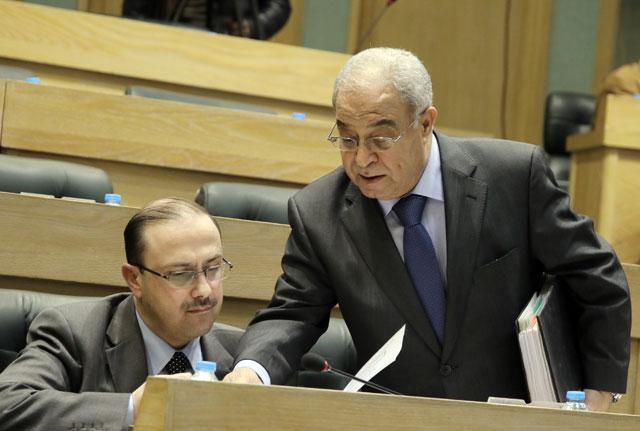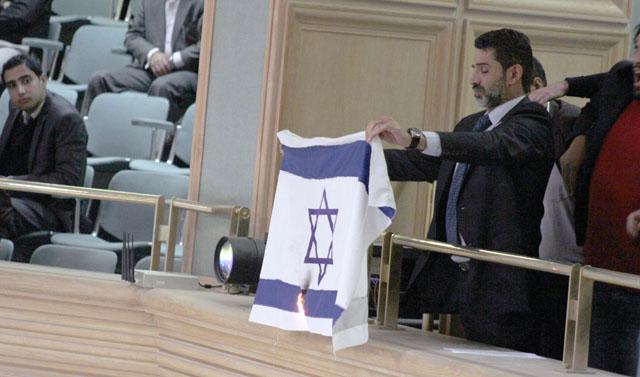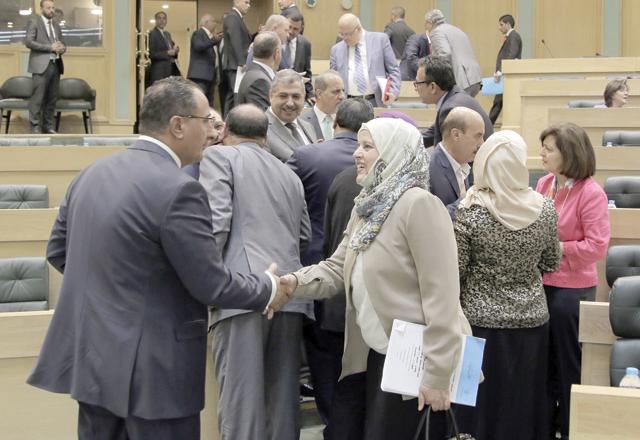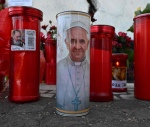You are here
Lower House holds closed session after MPs protest gov’t handling of embassy shooting
By Jassar Al Tahat - Jul 26,2017 - Last updated at Jul 26,2017
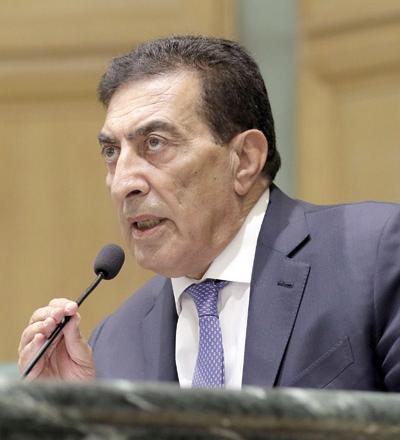
Lower House Speaker Atef Tarawneh speaks during a session on Tuesday (Petra photo)
AMMAN — Tuesday’s Lower House session, which was set to discuss the amended Penal Code, was prematurely adjourned after several MPs walked out in protest of Interior Minister Ghaleb Zu’bi remarks about the Israeli embassy shootings.
The hostile mood of some lawmakers towards the government was clear from the start of the session.
In his opening remarks, Lower House Speaker Atef Tarawneh said that the government’s response to the killing of two Jordanians by an Israeli embassy employee on Sunday “did not reflect the graveness of the situation and its repercussions”.
The government was “inexcusably too late in clarifying the incident”, he argued, adding that this led to “false information and rumours that strained public opinion”.
The speaker demanded that the government provide the House with the results of the investigation into the case “within a few days, and without any delay, due to the incident’s political, diplomatic and social repercussions, which require a decisive stand to stop Israeli arrogance and violations”.
In his response, Minister of Interior Ghaleb Zu’bi stated that the investigation was still ongoing, vowing to provide the House with a detailed report after the conclusion of the investigation.
The Public Security Department said late on Monday that it had concluded its investigation into the incident and had referred the case to the concerned prosecutor general.
Investigators concluded that an argument over “a delay in delivering furniture to the embassy staffer’s apartment” by the Jordanian victim escalated into a physical attack on the embassy employee by Mohammad Jawawdeh.
The Israeli responded by opening fire, killing the 16-year-old and also hitting the building’s owner, Bashar Hamarneh, a doctor, who died of his injuries later in the day.
Zu’bi said the government took the appropriate measures, deploying security forces to surround the building and contain the situation.
“I was on the site to make sure that all measures taken were correct and timely,” the minister said.
A commotion followed the minister’s remarks, and, in protest, a group of MPs walked out of the session, heeding a call by MP Khaled Fanatseh (Maan).
He accused the government of “insulting all Jordanians and Parliament” with its “passiveness and the way it dealt with the incident”.
Videos published on social media also appeared to show Fanatseh striking another deputy, Faisal Al Aawar (Zarqa, 1st District), as Fanatseh walked out of the session.
Atef Tarawneh adjourned the session, “out of respect to the demands of a large number of MPs who withdrew from the session”.
He called for a meeting behind closed doors to further discuss the issue in the presence of the interior minister.
In remarks to The Jordan Times following the meeting, Deputy Ali Khalaileh (Zarqa, 2nd District) commended Tarawneh’s statement as “strong”, as the speaker “exposed the government’s weak performance regarding this incident. He spoke for all of us, and the withdrawal was a tactic by MPs to highlight what Tarawneh had already said”.
The nearly two-hour closed discussion, which was attended by the “majority of House members” and the minister, witnessed a heated argument, with shouting audible through the closed doors of Akef Al Fayez hall.
After leaving the meeting, Balqa Deputy Mutaz Abu Rumman told The Jordan Times: “If the man is back in Israel, there is no way to rectify the situation. What was said behind closed doors should have been said under the Dome, in order to contain the public.”
Saleh Armouti (Amman, 3rd District) told the paper that “the criminal who left the Kingdom defied Jordanians and violated Jordanian sovereignty. A statement will be released today or tomorrow, adopted by the majority of lawmakers, calling for the closure of the Israeli embassy, the expulsion of the ambassador from Amman and the recall of the Jordanian ambassador in Israel”.
“The government lost its legitimacy after releasing this murderer without consulting the judiciary. That was a poor act by the government,” added Armouti, a former Bar Association president and veteran jurist.
He acknowledged that the authorities “are not obliged to abide by our demands to cut diplomatic ties with Israel. However, if it does not, we can exercise our constitutional right and withdraw confidence from the government”, Armouti concluded.
Tarawneh adjourned the session until Sunday, when lawmakers are scheduled to continue debate over the amended Penal Code.
Related Articles
AMMAN — The Lower House, in an oversight session on Sunday, discussed 13 MP questions, the Jordan News Agency, Petra, reported.While the oth
MPs delivered strongly worded and emotional speeches during Tuesday’s Lower House session, demanding a firm response to the killing of Jordanian Judge Raed Zuaiter by Israeli soldiers on Monday.
AMMAN — MPs on Tuesday passed four bills related to judicial reform on the agenda of the extraordinary session, which started yesterday, whi


